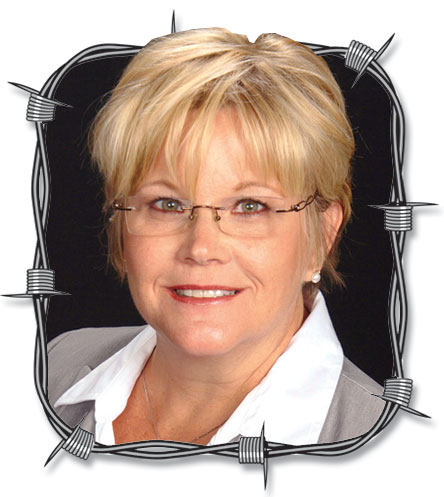How do I manage risk associated with my farm operation?” This is a common question that seems to be more prevalent today in light of the turbulent economy. Unfortunately, there isn’t a “silver bullet” to managing risks but there are several things you can do. Primarily, control the things that you can control.
Loan Structure
Loans come in a variety of shapes and sizes. To ensure the safety and soundness of your operation you need to become familiar with credit and loan structuring. Typical loan variables include interest rates, terms, payment frequency and loan length.
Securing a fixed interest rate can minimize risk during a rising rate environment. You may find that fixed rates are higher than variable rates. Keep in mind that the fixed rate will not change for the life of the loan regardless of which direction interest rates go.
Loan terms encompass many areas. Be sure to read and understand your loan conditions. Ask your lender if you find anything that you don’t understand. It is their job to answer and explain loan terms. Some terms or provisions to consider that may help you minimize risk include the exclusion of prepayment penalties and availability of conversion opportunities.
The last items to watch in your loan structure are payment frequency and loan length. The payment plan and maturity should fit your business cash flow and production cycle. For example, an annual payment based on when you sell your cattle could be appropriate. If you work off the farm with a stable income, a monthly pay may work best. Loan length should always correlate to the depreciation value of the loan item. If the asset is real estate, consider the pros and cons of long-term, fixed rate loans.
Liquidity
“Save for a rainy day.” Perhaps this cliché should be taken seriously. Working capital and liquidity are essential for any sound business. You should purchase items that can help build your profitability. If increased profits aren’t an outcome of the purchase, consider saving the money to build liquidity that also provides you cash availability. What you do must make sense for your situation. So it is also a good idea to talk with your lender and have them review your plan. Another set of eyes can be beneficial.
Financial Records
It is a common perception that lenders look at financial records for their sole benefit. To be certain, lenders are looking for sound credit and risk management strategies. However, another reason and, of more benefit, for keeping complete financial records is what this information can provide you. Your financial records are the core of your business and should allow you to analyze the strengths and weaknesses in order to improve your bottom-line. The benefit for you could be the difference between success and failure.
Insurance
Nobody can predict Mother Nature, feed costs, sale prices or other marketing conditions. Appropriate insurance coverage, on the other hand, can help you minimize the potential negative financial impact on you, your family and your farming operation. Whether you are looking for crop, life or livestock insurance, enlist the help of licensed providers to ensure the best protection from the best variety of products. And remember, insurance isn’t just for row-crop farmers. Take the time to learn about Livestock Risk Protection (LRP) and Livestock Gross Margin (LGM) insurance products. LRP insures against declining market prices for swine, feeder cattle, lambs and fed cattle. LGM is available for cattle, swine and dairy to protect gross margin. For example, LGM for dairy cattle provides protection against loss of gross margin (market value of milk minus feed costs) on the milk produced from dairy cows.
Communication
The final tip is early and frequent communication with your lender. When you succeed, your lender succeeds. So it is in the best interest of both parties to stay in touch. If you experience problems that change your financial position, call them. Many times, your lender has tools to help you through rough periods. It isn’t always comfortable but the best farming operations keep those lines of communication open.
Darrell Harshaw is the Vice President and branch manager of FCS Financial in Mt. Vernon, Mo.





